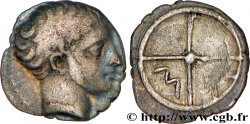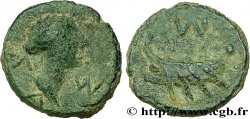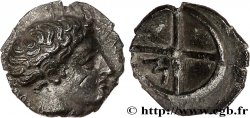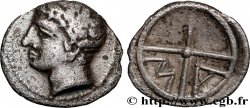bga_528141 - MASSALIA - MARSEILLE Petit bronze au dauphin, tête à gauche
Not available.
Item sold on our e-shop (2025)
Price : 160.00 €
Item sold on our e-shop (2025)
Price : 160.00 €
Type : Petit bronze au dauphin, tête à gauche
Date: après 49 AC.
Mint name / Town : Marseille (13)
Metal : bronze
Diameter : 12 mm
Orientation dies : 12 h.
Weight : 2,62 g.
Rarity : R2
Coments on the condition:
Très bel exemplaire de haut relief. Joli droit. Patine verte
Catalogue references :
Predigree :
Exemplaire provenant de la collection C.N., acquis en 2005
Obverse
Obverse legend : M.
Obverse description : Tête de Minerve à gauche.
Reverse
Reverse description : Dauphin à gauche.
Commentary
Poids lourd. Avec ce style de tête et un dauphin très stylisé, ce bronze correspond au PBM-71-1 du Dicomon.
La série au buste de Minerve associé au dauphin n'est pas très courante ; il existe des avers et des revers à droit et à gauche, soit une possibilité de quatre combinaisons.
Sur cet exemplaire, le dauphin à gauche est très bien venu, sans aucune légende.
Heavy weights. With this style of head and a very stylized dolphin, this bronze corresponds to the Dicomon PBM-71-1. The series with the bust of Minerva associated with the dolphin is not very common; There are obverses and reverses on the right and left, making four possible combinations. On this example, the dolphin on the left came very well, without any legend
La série au buste de Minerve associé au dauphin n'est pas très courante ; il existe des avers et des revers à droit et à gauche, soit une possibilité de quatre combinaisons.
Sur cet exemplaire, le dauphin à gauche est très bien venu, sans aucune légende.
Heavy weights. With this style of head and a very stylized dolphin, this bronze corresponds to the Dicomon PBM-71-1. The series with the bust of Minerva associated with the dolphin is not very common; There are obverses and reverses on the right and left, making four possible combinations. On this example, the dolphin on the left came very well, without any legend







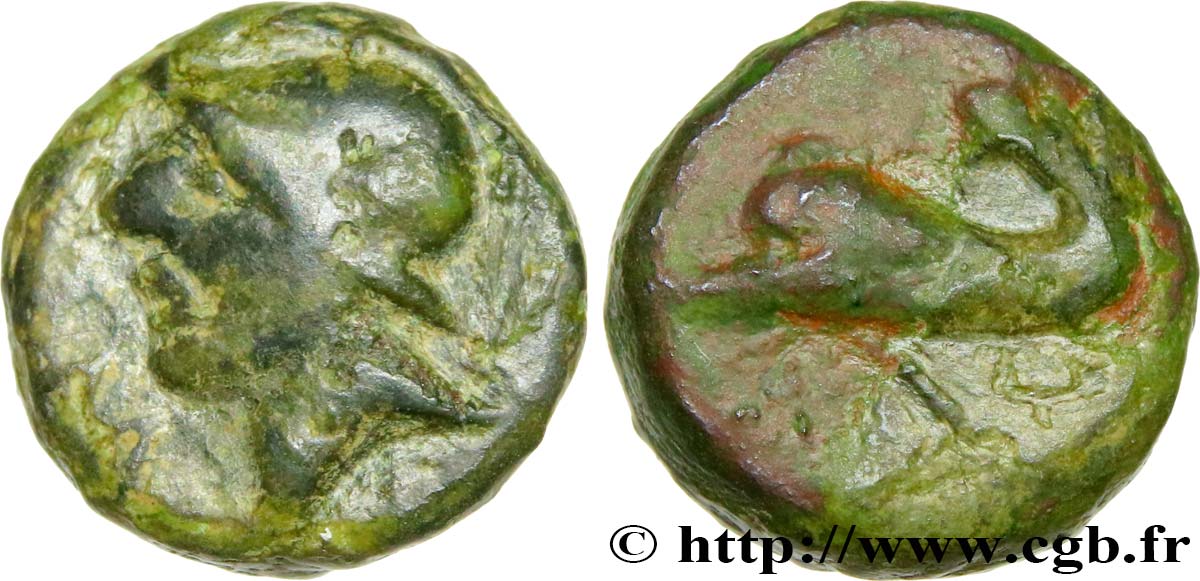
 Report a mistake
Report a mistake Print the page
Print the page Share my selection
Share my selection Ask a question
Ask a question Consign / sell
Consign / sell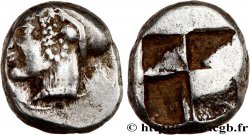
 Full data
Full data